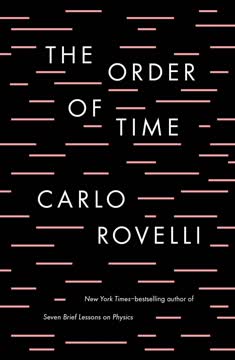Searching...
Top 10 Must-Read Books on the Philosophy of Science
Explore the most insightful books on the philosophy of science, featuring 10 essential reads that challenge your understanding of knowledge and reality.
Book Summaries
Science as a Candle in the Dark
Carl Sagan's classic work is a passionate defense of scientific thinking, urging readers to embrace skepticism and critical inquiry in a world rife with superstition.
3 Key Takeaways:
- Science as a Candle in the Dark: Illuminating Critical Thinking
- The Power of Skepticism: Combating Pseudoscience and Superstition
- The Demon-Haunted World: Understanding the Appeal of Irrational Beliefs
Carlo Rovelli's poetic exploration of time challenges conventional perceptions, making it a must-read for those interested in the philosophical implications of physics.
3 Key Takeaways:
- Time is not universal, but relative and variable
- The present moment is not a universal concept
- Past and future distinction emerges from entropy
Alain de Botton's engaging exploration of philosophical ideas provides practical insights for everyday life, making philosophy accessible and relevant.
3 Key Takeaways:
- Socrates: The Embodiment of Intellectual Independence
- Epicurus: Redefining Happiness Through Simplicity
- Seneca: Embracing Adversity with Stoic Wisdom
Pseudoscience, Superstition, and Other Confusions of Our Time
Michael Shermer's exploration of the psychology behind irrational beliefs is essential for understanding the importance of critical thinking in a world filled with pseudoscience.
3 Key Takeaways:
- Skepticism is a method, not a position
- Science progresses through self-correction and convergence of evidence
- Pseudoscience exploits cognitive biases and logical fallacies
On the Origins of Life, Meaning, and the Universe Itself
Sean Carroll's ambitious work connects science and philosophy, offering profound insights into the nature of existence and our place in the universe.
3 Key Takeaways:
- The universe is governed by impersonal laws of physics
- Consciousness emerges from complex physical processes
- Life arises from simple chemical reactions and natural selection
Neil deGrasse Tyson's engaging correspondence offers a unique perspective on science, religion, and philosophy, making complex ideas accessible and relatable.
3 Key Takeaways:
- Science is about understanding, not just knowing facts
- The cosmic perspective offers awe and humility
- Skepticism and evidence are crucial in scientific inquiry
Deep, Beautiful, and Elegant Theories of How the World Works
This anthology of essays from leading thinkers provides a thought-provoking exploration of elegant scientific theories, perfect for those seeking intellectual stimulation.
3 Key Takeaways:
- The elegance of evolution by natural selection
- The power of deep time in shaping our world
- The beauty of emergent phenomena in complex systems
Spiritual Exercises from Socrates to Foucault
Pierre Hadot's insightful examination of ancient philosophy as a practical guide to living offers timeless wisdom for navigating modern challenges.
3 Key Takeaways:
- Ancient philosophy as a way of life and spiritual exercise
- Socratic dialogue as a transformative practice
- The art of living in the present moment
How to Tell Science from Bunk
Massimo Pigliucci, a philosopher and biologist, expertly navigates the murky waters between science and pseudoscience, making this book essential for anyone interested in understanding scientific methodology.
3 Key Takeaways:
- Science is a complex endeavor, not a monolithic entity
- The demarcation problem: Distinguishing science from pseudoscience
- Media representation often distorts scientific understanding












